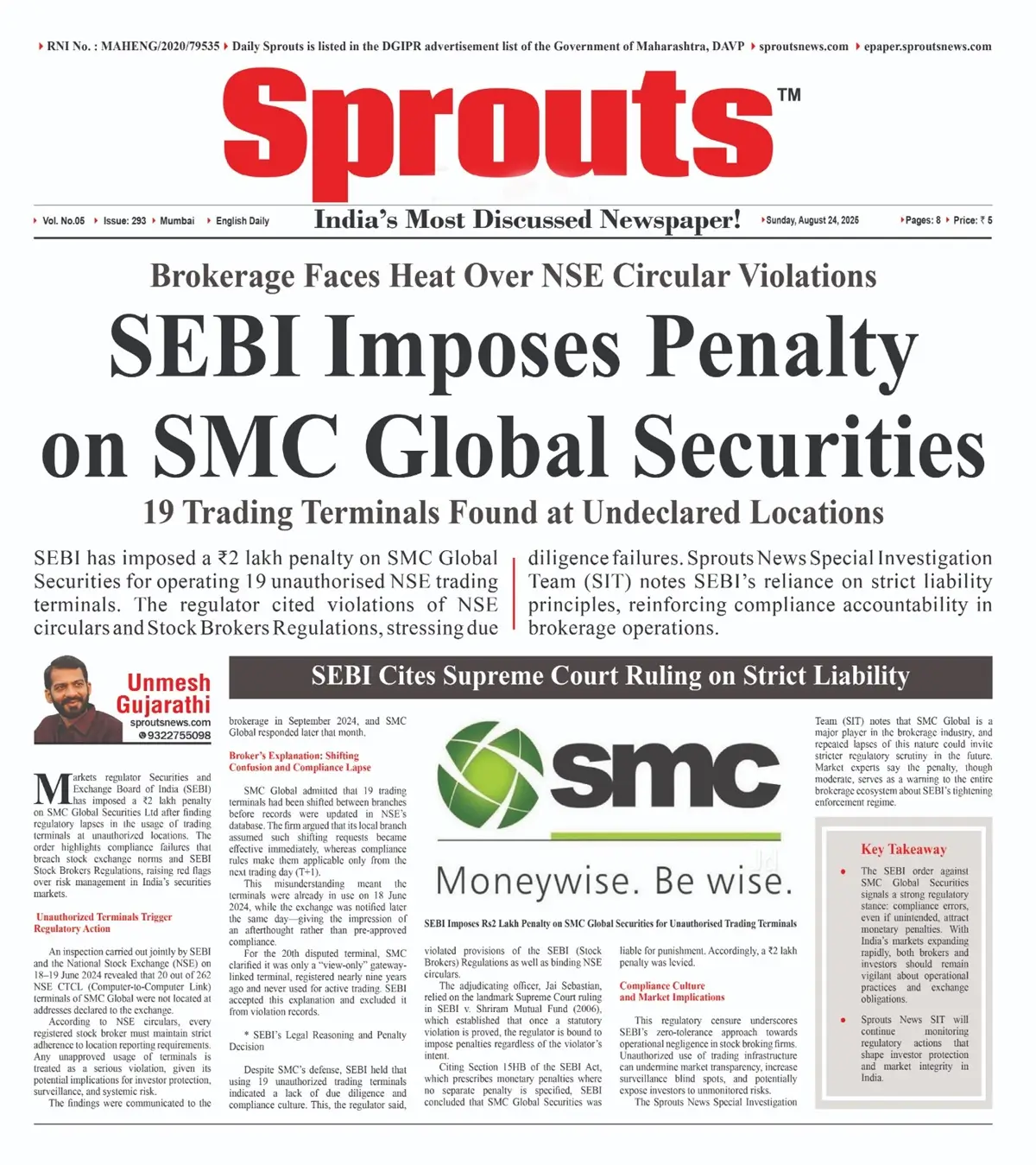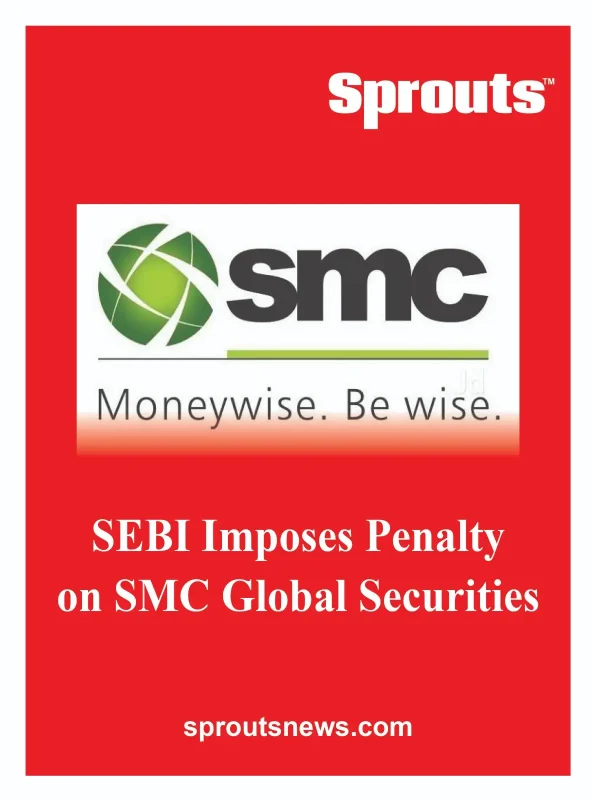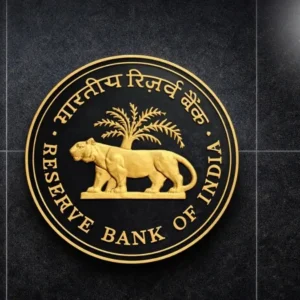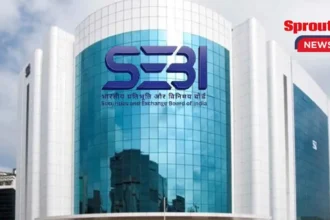SEBI Imposes Rs2 Lakh Penalty on SMC Global Securities for Unauthorised Trading Terminals
•Brokerage Faces Heat Over NSE Circular Violations
•19 Trading Terminals Found at Undeclared Locations
•SEBI Cites Supreme Court Ruling on Strict Liability
Unmesh Gujarathi
Sprouts News Exclusive
Contact: +91 9322755098
Sprouts News Exclusive
Contact: +91 9322755098
SEBI has imposed a ₹2 lakh penalty on SMC Global Securities for operating 19 unauthorised NSE trading terminals. The regulator cited violations of NSE circulars and Stock Brokers Regulations, stressing due diligence failures. Sprouts News Special Investigation Team (SIT) notes SEBI’s reliance on strict liability principles, reinforcing compliance accountability in brokerage operations.
Markets regulator Securities and Exchange Board of India (SEBI) has imposed a ₹2 lakh penalty on SMC Global Securities Ltd after finding regulatory lapses in the usage of trading terminals at unauthorized locations. The order highlights compliance failures that breach stock exchange norms and SEBI Stock Brokers Regulations, raising red flags over risk management in India’s securities markets.
Unauthorized Terminals Trigger Regulatory Action
An inspection carried out jointly by SEBI and the National Stock Exchange (NSE) on 18–19 June 2024 revealed that 20 out of 262 NSE CTCL (Computer-to-Computer Link) terminals of SMC Global were not located at addresses declared to the exchange.
According to NSE circulars, every registered stock broker must maintain strict adherence to location reporting requirements. Any unapproved usage of terminals is treated as a serious violation, given its potential implications for investor protection, surveillance, and systemic risk.
The findings were communicated to the brokerage in September 2024, and SMC Global responded later that month.
Broker’s Explanation: Shifting Confusion and Compliance Lapse
SMC Global admitted that 19 trading terminals had been shifted between branches before records were updated in NSE’s database. The firm argued that its local branch assumed such shifting requests became effective immediately, whereas compliance rules make them applicable only from the next trading day (T+1).
This misunderstanding meant the terminals were already in use on 18 June 2024, while the exchange was notified later the same day—giving the impression of an afterthought rather than pre-approved compliance.
For the 20th disputed terminal, SMC clarified it was only a “view-only” gateway-linked terminal, registered nearly nine years ago and never used for active trading. SEBI accepted this explanation and excluded it from violation records.
SEBI’s Legal Reasoning and Penalty Decision
Despite SMC’s defense, SEBI held that using 19 unauthorized trading terminals indicated a lack of due diligence and compliance culture. This, the regulator said, violated provisions of the SEBI (Stock Brokers) Regulations as well as binding NSE circulars.
The adjudicating officer, Jai Sebastian, relied on the landmark Supreme Court ruling in SEBI v. Shriram Mutual Fund (2006), which established that once a statutory violation is proved, the regulator is bound to impose penalties regardless of the violator’s intent.
Citing Section 15HB of the SEBI Act, which prescribes monetary penalties where no separate penalty is specified, SEBI concluded that SMC Global Securities was liable for punishment. Accordingly, a ₹2 lakh penalty was levied.
Compliance Culture and Market Implications
This regulatory censure underscores SEBI’s zero-tolerance approach towards operational negligence in stock broking firms. Unauthorized use of trading infrastructure can undermine market transparency, increase surveillance blind spots, and potentially expose investors to unmonitored risks.
The Sprouts News Special Investigation Team (SIT) notes that SMC Global is a major player in the brokerage industry, and repeated lapses of this nature could invite stricter regulatory scrutiny in the future. Market experts say the penalty, though moderate, serves as a warning to the entire brokerage ecosystem about SEBI’s tightening enforcement regime.
Key Takeaway
The SEBI order against SMC Global Securities signals a strong regulatory stance: compliance errors, even if unintended, attract monetary penalties. With India’s markets expanding rapidly, both brokers and investors should remain vigilant about operational practices and exchange obligations.
Sprouts News SIT will continue monitoring regulatory actions that shape investor protection and market integrity in India.


















